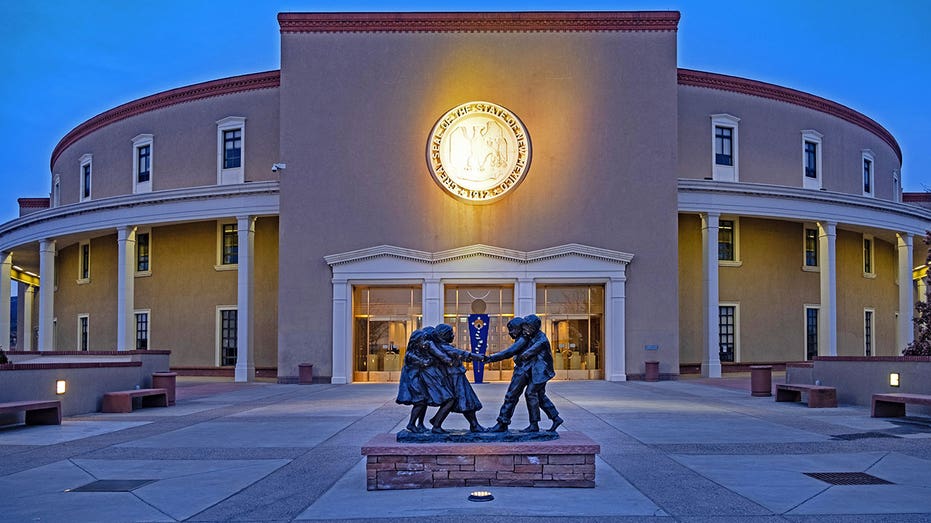The top-ranked Republicans in the New Mexico House and Senate won’t seek reelection this year as their party seeks a stronger footing in the Democrat-led Legislature.
Senate Republicans are reckoning with the first election since a redistricting plan from Democrats merged GOP-led districts.
Senate Republican leader Greg Baca of Belen said his decision to leave the Senate by year’s end was informed by conversations with his family, prayer and attention to new political boundaries adopted by the Democrat-led Legislature in 2021.
NEW MEXICO HOUSE REJECTS PAID FAMILY LEAVE EXPANSION, CONSIDERS POLITICAL DEEPFAKE REGULATION
“Careful observers of the progressive plan to pit two Hispanic Republicans against each other through redistricting may have seen this coming,” said Baca in a statement, while endorsing Republican state Sen. Joshua Sanchez of Bosque in the merged district. “In short, I refuse to allow the radical left to pit brother against brother.”
House minority leader T. Ryan Lane of Aztec also chose not to seek reelection, saying he wants to spend more time with his wife and two sons.
Lane, an attorney who runs a craft ice cream store with his wife, said the Republicans are well positioned to gain seats in the House.
“I think the people of New Mexico are waking up to the fact that progressive politics are why New Mexico is consistently last,” he said. “I feel like I’ve left my caucus in the House Republicans to be positioned well for success moving forward.”
State legislative candidates raced against a Tuesday-evening deadline to submit signature petitions that can qualify them for the state’s June 4 primary and November general election.
Democrats outnumber Republicans nearly 2-1 in the state Senate, amid a wave of retirement announcements that could tilt the partisan balance next year. In the House, Democrats currently have a 25-15 seat advantage after winning back the House majority in 2016. The entire Legislature is up for election in November.
In drawing new Senate districts, the Legislature embraced recommendations from Native American communities for shoring up Indigenous voting blocs in the northwest of the state. But Republicans at the same time bristled at provisions that merged two Republican-held districts.
The Legislature’s annual session adjourned in mid-February with approval of several public safety initiatives and an annual budget plan that slows down a spending spree linked to an oil production bonanza in the Permian Basin that overlaps southeastern New Mexico and portions of Texas.
Separately on Tuesday, four state House Republican legislators from southeastern New Mexico and Farmington urged the state land commissioner to reverse course on her decision to withhold some lease sales for oil and gas development until the Legislature agrees to raise royalty rates in premium tracts from 20% to 25%.
AMERICANS EXPOSED TO NUCLEAR RADIATION BY GOVERNMENT WOULD BE COMPENSATED UNDER APPROVED SENATE BILL
A letter to Land Commissioner Stephanie Garcia Richard warns of possible unintended consequences including job losses and reduced government income if petroleum producers redirect investments from New Mexico to other oil fields. It was signed by Republican state Reps. Jim Townsend of Artesia, Larry Scott of Hobbs, Rod Montoya of Farmington and Jared Hembree of Roswell.
State Land Commissioner Stephanie Garcia Richard said the state will forgo a trove of income and investment returns over the lifetime of future leases if royalties stay capped at 20%. In New Mexico, royalty payments from oil and gas development on state trust land are deposited in a multibillion-dollar investment trust that benefits public schools, universities and hospitals.
The accountability and budget office of the Legislature says a 25% royalty rate cap would increase annual revenues by $50 million to $75 million.
























